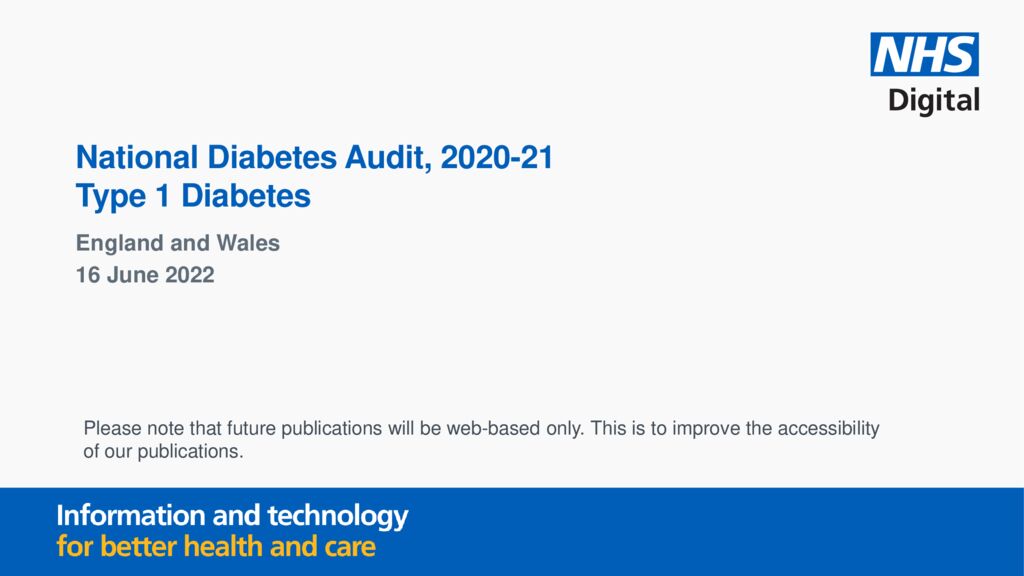National Diabetes Audit, 2020-21: Type 1 Diabetes
The National Diabetes Audit (NDA) has published its latest report on Type 1 Diabetes, which covers the period from 1 January 2020 to 31 March 2021. Based on data from England and Wales, the report details the findings and recommendations relating to diabetes care process completion, treatment target achievement and structured education for people with type 1 diabetes aged 19 year and over.
The report found that due to the COVID-19 pandemic restrictions, care process completion reduced markedly in 2020-21 – for example glycated haemoglobin (HbA1c) checks reduced from 88% to 80% and Body Mass Index (BMI) measurements from 86% to 67%. However, by contrast, overall HbA1c treatment target achievement improved in 2020-21; for example, the median rate of achieving HbA1c ≤58mmol/mol (7.5%) increased from 28% in 2019-20 to 31% in 2020-21. Other key findings include:
- The use of non-invasive glucose monitoring and insulin pump technology was associated with lower HbA1c. These technologies were being used more by adults of white ethnicity and adults in areas of low deprivation than by adults of other ethnicities and in more deprived areas. Findings were similar for recorded completion of structured education.
- All care processes and treatment outcomes vary by location. For example, both comprehensive Clinical Commissioning Group / Local Health Board (CCG/LHB) data and partial specialist service data show ranges of 20-45% in achievement of HbA1c ≤58mmol/mol (7.5%) by location.
The report goes on to make a number of recommendations, including a call to specialist services to work with local systems to ensure that everyone with type 1 diabetes – irrespective of age, sex, ethnicity or social circumstances – has the opportunity to benefit from structured education, non-invasive glucose monitoring and insulin pump treatment as per guidelines from the National Institute for Health and Care Excellence (NICE).
Read the full report: You can read the report by clicking on the link below.
Stay-up-to-date: For notifications of future reports from HQIP, sign up to our mailing list.


